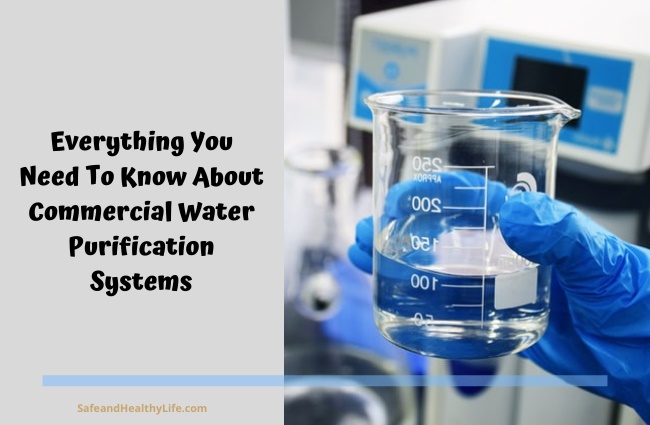
Clean, pure, and safe drinking water is important for the overall good health of an individual.
Due to growing population, industrialization and environmental degradation, the quality of water has been steadily deteriorating for the past couple of years.
This leads to the need for water purifiers with advanced technology, especially in commercial establishments that require pure drinking water for their employees and customers.
If you are searching for the best commercial water purification system, then you need to consider few factors and know about the different purification methods (RO and UV) to make an informed choice.
1. Difference Between Domestic and Commercial Water Purifier
Domestic water purifiers are ideal for home use as they are compact in size. They are available in different water purification methods – RO, UV, and RO+UV+UF. Depending on the quality and source of water in your area, you can select a home water purifier that suits your needs.
However, to obtain pure drinking water at home, a UV+RO+UF water purifier is recommended.
Commercial water purifiers are used to purify large volumes of water for commercial purposes.
They are mostly used in hospitals, offices, restaurants, and schools where a continuous supply of pure drinking water is required. Commercial water purifiers provide many benefits and are highly durable and cost-efficient.
2. Factors That Affect the Quality of Water
- TDS: Total Dissolved solids (TDS) are inorganic salts and organic matter. The inorganic salts are made up of calcium, potassium, sodium, magnesium, chlorides, sulfates, and bicarbonates. Most of these are present in water due to natural causes and may get dissolved due to environmental changes.
- The hardness of water: The scale of measuring the number of components and elements present in water is known as the ‘hardness of the water.’ This simply refers to the amount of calcium & magnesium dissolved in the water. However, the hardness of the water may also come from metals. Commercial water purifiers provide ion media belts that help remove harmful ions, thereby reducing the hardness of the water.
- pH levels: The pH level of pure water is 7. Anything less than 7 is considered acidic water. Whereas, water with a higher pH level is considered basic. The pH levels represent the hydrogen ions present in the water, and the pH value varies from 1 to 14 with 7 being the neutral aspect.
3. Commercial Water Purification Methods
- RO: Reverse Osmosis (RO) is one of the most popular water purification methods. It is a separation technology that uses a membrane as the separation medium to remove dissolved impurities from water. A commercial RO water purifier is ideal for water with high TDS levels (over 500 ppm) which comes from underground sources.
- UV: Short for Ultraviolet, this is a disinfection technology that uses UV light to kill microorganisms from water. The UV light helps destroy the microorganisms present in the water by disrupting their DNA. It is a natural and chemical-free method that is well-suited for water with low TDS levels that come from municipal sources.
4. Commercial Water Purifiers are Best For
- Educational institutions: Easy access to pure drinking water in schools is essential for the good health of the students as well as the staff. Staying hydrated is known to improve concentration and can help keep headaches, dizziness, and lethargy at bay.
- Hospitals: Apart from drinking purposes, medical institutions need sterile pure water for several medical procedures. This makes installing a water purifier a necessity for hospitals to ensure safety standards are followed strictly.
- Offices: The welfare of the employees plays an important part in the success of a company. By having a water purifier at the workplace, you can safeguard the health of your employees. This will help boost productivity and ensure fewer sick leaves.
- Restaurants: The quality and taste of the water subsequently affect the food prepared in restaurants. It is the responsibility of the food sector to see that the food & water served at their establishment is safe to consume. Thus, a commercial water purifier will ensure that basic protocols are met diligently.
- Public halls: Public halls need a water purifier as it usually serves a large crowd of people attending an event, wedding, or a function. A water purifier will ensure that pure water is served to all sans any impurities, which will help safeguard their health.
Conclusion
A commercial water purifier is one of the easiest ways to provide pure and safe drinking water to all individuals at your establishments.
Based on the source and quality of water, you can pick either RO or UV water purifiers.
What’s more, a commercial water purifier is also more cost-effective than bottled water and can help reduce plastic waste, thereby safeguarding the environment at large.
About The Author:
Regina Patil is an experienced content specialist with a demonstrated history of working in the web design industry. Skilled in writing SEO-related articles, social media posts, long-form content, outreach content, infographic content, and more. Strong media and communication professional with a Certificate Course focused in Creative Writing from St Xaviers College – Mumbai.




